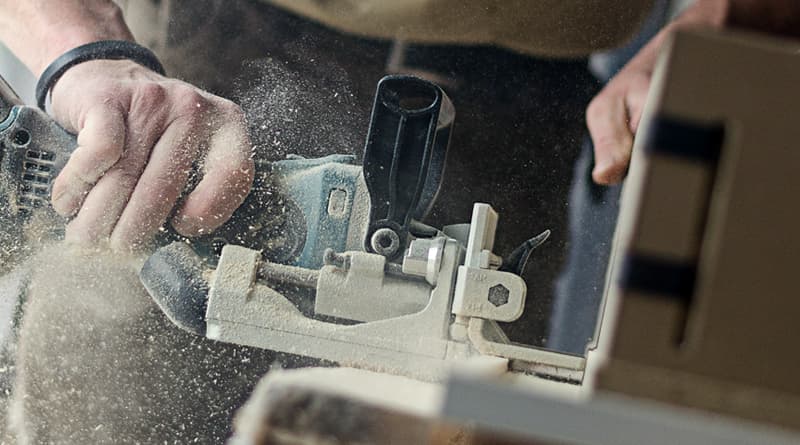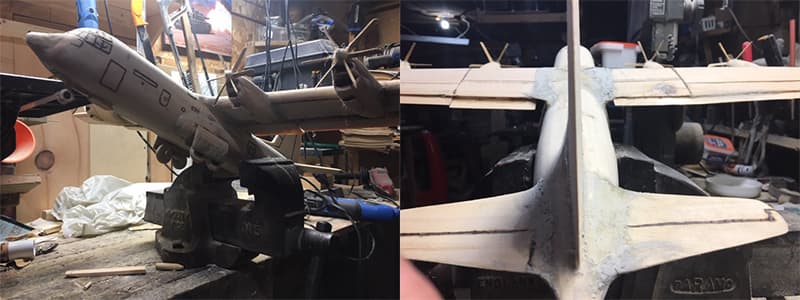
Meaningful Employment & Autism: A Self-Advocate’s Perspective
By Aaron Bouma
Defining Meaningful Employment
What do we think of when it comes to “meaningful employment”? Is it something we love? Is it a job that makes us feel valued? Is it fulfilling? Or is it something we go to just to receive a paycheck? For me, “meaningful employment” is something that allows everyone to be employable in an equally respectful and respectable environment with at least minimum wage.
In a number of provinces including mine, New Brunswick, there are organizations called sheltered workshops. These workshops are supplemented by the government to pay people with disabilities below minimum wage, while still having them work from 9am till 4pm or similar. Anywhere from woodworking to newspaper shredding to other manual labor, hundreds work at these workshops with strict rules in an almost school-like setting. Why should people with disabilities be placed in such a strict atmosphere in which they don’t benefit? It can prevent the socialization they may otherwise benefit from. Not only do sheltered workshops have members with disabilities. But they can also be used to provide probational employment to members in trouble with the law for a number of crimes. Some of these people can have and have been charged with violent actions. Some members with disabilities there can have behavior problems themselves but it all adds to the mix of people from different and sometimes difficult backgrounds. It can have and does have negative consequences as well as positive ones.
What does meaningful employment mean to people with disabilities? What does it mean for autistics? Does it mean working 9 to 5, Monday through Friday? Or does it mean at least minimum wage? To me working 9 to 5, Monday through Friday and getting $50 dollars a week, give or take, reminds me of the 1960s era way of thinking. But how do we change this? How and what is considered acceptable under modern circumstances? Despite changes in leadership and laws, scenarios like this still exist.
Positive Changes for Employment
What can we as #autistic people do to change this? For me, it was starting my own business. Bouma Woodworks allows me to make money and have the freedom of schedule and doing something I love all in one. As far as government and society goes: in New Brunswick we need to update standard practices. With the ability to do amazing things, people with disabilities deserve a chance to excel. But in places like these sheltered workshops, much of that is overlooked.
Going back to finances, peoples with disabilities on Social Assistance with the Provincial Government (in New Brunswick, Canada) are allowed to make up to $500 dollars a month before money is taken off their assistance checks. This is why they are never paid up to minimum wage. In a sense, the government is making sure that you still need social assistance by doing this. It is also a way to keep people in poverty: if they make too much, they take money away off their checks. But it is not dollar for dollar as it used to be. What do you think about meaningful employment for people with disabilities? As an #actuallyautistic person, I fully believe we have a much farther way to go. Certainly in New Brunswick, Canada.
How Can Workplaces Be More Accepting?
Some of the tips I have for employers is to write down constructively what is needed and how to complete these tasks for an autistic person that may be struggling. Number it from 1 to 5 for example. If they are having problems with coworkers for example, the first wrong thing many educators and employers do is target the behavior of the individual which has either acted out or shown frustration. The best response to take with this is ask them: what is causing the frustration? Did someone do something, or did something happen? Unfortunately employers are not that thorough in this approach. Or do it haphazardly. In the case of sheltered workshops, most employers are not trained or know much about autism at all, and so will make judgements that are erroneous.
With my business, the first thing that has helped me was getting creative, being able to work at my own pace and creating standards from my own learning experiences. I learned safety standards, being taught how to use equipment safely and securely. I learned and set best practices for sales and quality. Everything comes with a learning curve. Not without bumps along the way. People with disabilities starting businesses has been an increasing trend in the past number of years. I can see why!
A Leap Forward Towards Meaningful Employment
What I want to see is a “Meaningful Employment Strategy” for the Province of New Brunswick and other provinces in Canada. I think this will be a great leap forward in the field of people with disabilities if it does happen. But this could take years. Luckily this is being explored and data collected – including with two projects I and friends have been involved in: the CONNECT Maritimes Project and the Provincial Tour. This new data that will come out will certainly help to make changes to employment as well as mental health services strategies available for autistic people. Data makes Policy. That’s how Government works. But if we don’t push for it, it doesn’t happen.
Below are pictures of my newest scratch-built military Project. The CC-130J Super Hercules Royal Canadian Air Force Transport plane built for a Defense Company in Quebec. Built at BoumaWoodworks.

Aaron Bouma is a proud man with autism, and an autism advocate with a passion. He is the owner of Bouma Woodworks, a woodworking business that builds military models and furniture. All of his military model guns, tanks as well as others are built from his mind, just using pictures, cutting piece by piece. Aaron also enjoys giving war history presentations at local schools, and speaking and advocating for people on the autism spectrum, practicing gymnastics and multiple types of martial arts. He also serve on a number of committees and boards in his local community.




